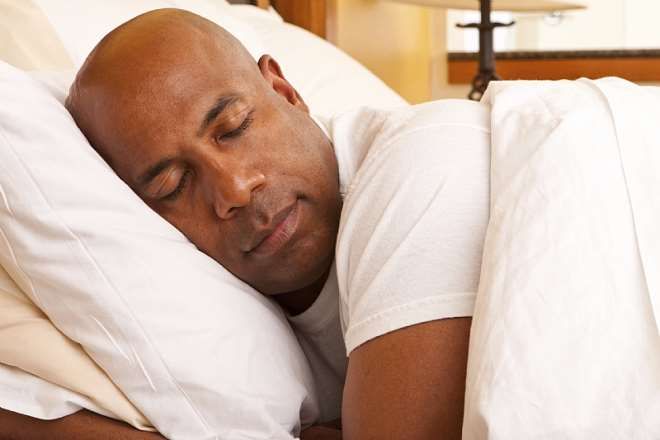Have You Ever Felt Being Pressed Down And Unable To Move While Sleeping?
As a teenager I used to sometimes feel paralysed while sleeping, I would wake up but be unable to move for some seconds. I remember telling my three friends at school then and they all said they had experienced it too and said it was a witch going round our hostel causing it. I was so terrified, why would a witch be pressing us down?
After a while it stopped happening and I have not thought about it in years until I stumbled on a link on webmd today, apparently there is a medical explanation for this thing!
Below is a summary from http://www.nhs.uk
Sleep paralysis is a temporary inability to move or speak that happens when you're waking up or, less commonly, falling asleep.
Although you're awake, your body is briefly paralysed, after which you can move and speak as normal. The paralysis can last from a few seconds to several minutes.
Sleep paralysis doesn't cause you any harm, but being unable to move can be very frightening.
Some people have sleep paralysis once or twice in their life, while others experience it a few times a month or more regularly.
Sleep paralysis can affect people of all ages, but it's more common in teenagers and young adults. Men and women are equally affected.
The paralysis usually occurs as you're waking up, but it can also sometimes happen when you're falling asleep.
Not being able to move or talk can be very frightening, particularly as you'll be completely conscious throughout the experience. Your breathing may also feel restricted, because taking deep breaths is often difficult.
During an episode of sleep paralysis, you may also experience a very real sensation that there's someone else in the room with you.
These type of hallucinations are a fairly common feature of sleep paralysis, although they don't occur in every case.
The length of time that you're unable to move for can vary from a few seconds to several minutes. After this, you'll be able to move and speak as normal.
Immediately after an episode of sleep paralysis, you may feel unsettled and anxious. However, the condition doesn't pose a risk to your overall health.
Many people only experience sleep paralysis once or twice in their life. If it happens several times a month or more regularly, it's known as isolated sleep paralysis.
CAUSES OF SLEEP PARALYSIS
Sleep paralysis is caused when parts of the rapid eye movement (REM) state of sleep persist or intrude into wakefulness.
This means that you remain temporarily paralysed, but are fully conscious.
REM sleep
Sleep occurs in cycles and each cycle is split into two phases – REM sleep and non-REM sleep.
The brain is very active in REM sleep and most dreams occur during this stage. The body is paralysed, apart from the movement of the eyes and diaphragm (the muscle used in breathing). The paralysis is thought to occur to prevent you acting out the actions in your dreams and potentially causing injury.
Sleep paralysis occurs when the normal muscular paralysis of REM sleep temporarily continues after you've woken up.
Certain factors make you more likely to get sleep paralysis. They include:
age – it's more common in teenagers and young adults
sleep deprivation – sleep paralysis is more common in people who don't get enough sleepirregular
sleeping patterns – people with irregular working patterns, such as those who work shifts, are more prone to sleep paralysis narcolepsy – some people with narcolepsy (where you're unable to stay alert for long periods and sleep is disrupted) may also experience sleep paralysis
family history – you may be more likely to have sleep paralysis if another member of your family also has it; however, further research is needed
Treating sleep paralysis
Ensuring you get enough sleep and improving your sleeping environment will help if you have sleep paralysis. In severe cases, medication may be recommended.
.: woman.ng
Latest News
-
 Division Among Nigerians As Cubana Chief Priest Is
Division Among Nigerians As Cubana Chief Priest Is -
 Cubana Chief Priest Pleads Not Guilty To Charges O
Cubana Chief Priest Pleads Not Guilty To Charges O -
 BBNAIJA Star, Mercy Eke Hospitalized After Partyin
BBNAIJA Star, Mercy Eke Hospitalized After Partyin -
 Regina Daniels Pays Tribute To Late Junior Pope
Regina Daniels Pays Tribute To Late Junior Pope -
 “Internal Bleeding” : Singer Khaid Is Reportedly H
“Internal Bleeding” : Singer Khaid Is Reportedly H -
 Davido Reveals Admiration For Rihanna, Wants To Wo
Davido Reveals Admiration For Rihanna, Wants To Wo -
 Cubana Chief Priest In Hot Waters With EFCC Over
Cubana Chief Priest In Hot Waters With EFCC Over -
 Young John Reveals Reason For Leaving Production F
Young John Reveals Reason For Leaving Production F -
 “The Apology Should Be As Loud As The Disgrace”- D
“The Apology Should Be As Loud As The Disgrace”- D -
 Yul Edochie Throws Shade At Unidentified Person In
Yul Edochie Throws Shade At Unidentified Person In














